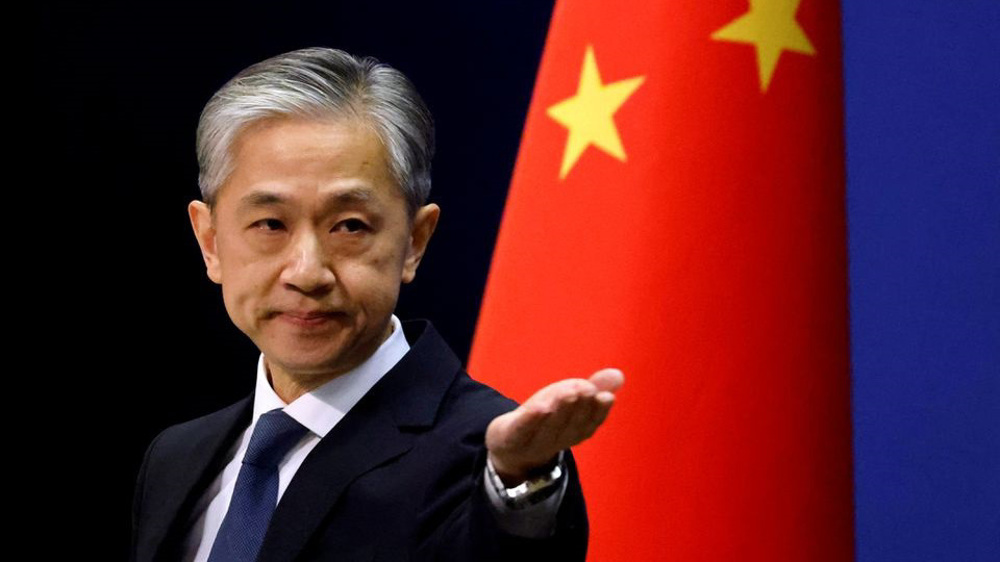China speaks out after the United States and Japan vowed to further solidify their alliance against Beijing, which the allies have identified as a mutual threat.
Chinese Foreign Ministry spokesman Wang Wenbin made the remarks at a press briefing in Beijing on Friday, two days after senior American and Japanese foreign and defense officials met in Washington, calling China’s growing power the “greatest strategic challenge” in the Indo-Pacific region and beyond.
“The Asia-Pacific is an anchor for peace and development, not a wrestling ground for geopolitics. We Asia-Pacific countries support justice and cooperation and oppose hegemonism and confrontation,” the spokesman said.
Wang urged the United States and Japan “to abandon the Cold War mentality and ideological bias, stop creating imaginary enemies…and refrain from becoming countercurrents that destabilize the stability of the Asia-Pacific region.”
The so-called two-plus-two meeting among the US and Japanese officials saw them alleging that their countries faced serious security threats from the direction of China, and also agreeing to modernize and optimize their alliance.
Observers said the announcement marked the latest effort by Washington and Tokyo to increase cooperation for a possible conflict with China over the self-ruled island of Chinese Taipei.
China has sovereignty over Chinese Taipei, and under the ‘One China’ policy, almost all world countries recognize that sovereignty.
During the meeting, however, the foursome officials affirmed their countries’ “basic position” on the Chinese Taipei — which Washington and Tokyo call Taiwan — and “the importance of maintaining peace and stability of the Taiwan Strait, which is an essential element for the safety and prosperity of the international community.”
Adding to his remarks, Wang further condemned the statement issued following the US-Japan meetings for being full of “groundless and slanderous attacks on China.” “We firmly oppose it,” he asserted.
“The US and Japan talk about promoting regional peace and security, but in fact, they find excuses for their military buildup and militarization…,” he added.
The Washington meeting also featured the countries’ officials pledging to reinforce, what they called, deterrence.
In a remarkable shift in its military mindset, Japan endorsed new security and defense strategy documents around two weeks earlier, putting it on a path to acquiring “counterstrike” capabilities, with the potential purchase of hundreds of US-made Tomahawk cruise missiles.
The foreign and defense chiefs said they would deepen cooperation toward the “effective employment” of Japan’s long-range strike capabilities and promote joint research and development of state-of-the-art military equipment.
Source: AFP




